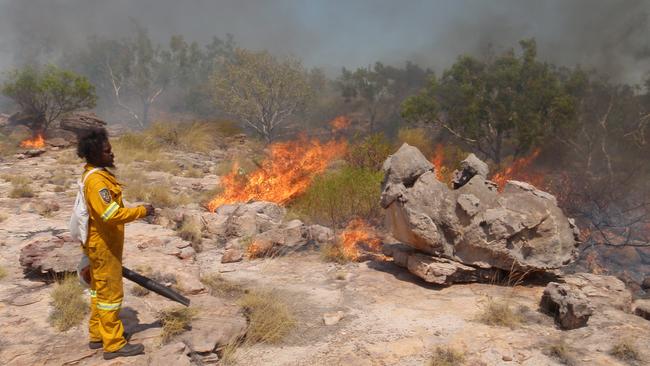Black Summer bushfires had a ‘disproportionate impact’ on indigenous Australians
One in eight indigenous Australians were directly affected by the ‘Black Summer’ bushfire season, the royal commission has heard.

Indigenous Australians were disproportionately impacted by the Black Summer bushfire season, with one in eight Aboriginal people directly affected, the royal commission into the disaster has heard.
Australian National University researcher Bhiamie Eckford-Williamson told the Royal Commission into National Natural Disaster Arrangements on Thursday that indigenous land management was critical to preventing catastrophic fires but Aboriginal voices had been largely overlooked.
“They are often relegated to an historical footnote in the natural history of a landscape or spoken about through the specific and restrictive lens of cultural heritage management,” he said.
Mr Eckford-Williamson told the inquiry the fires directly affected 96,000 indigenous people in NSW, Victoria, the ACT and the Jervis Bay Territory, representing 12 per cent of Australia’s Aboriginal population.
“It is clear that indigenous peoples have been disproportionately impacted by the Black Summer bushfires,” he said, explaining the impact on Aboriginal people was profound because of the loss of land, cultural heritage sites and native animals.
Mr Eckford-Williamson said Aboriginal people must be listened to and involved in any cultural land management practice.
“Cultural land management is not an add-on or an enhancement,’’ he said. “It’s not a practice that can simply be grafted on to the regime of non-indigenous land managers.”
University of Melbourne researcher Michael Shawn-Fletcher told the commission cultural burning was not just about reducing fuel load.
“Indigenous people are among the most disadvantaged and disaffected in Australia, part of it because of suppression of our culture throughout history,” he said.
“Cultural burning represents a key way in which we can mitigate against catastrophic bushfire and help address inequity.”
Dr Shawn-Fletcher said the 2019-20 bushfire season was unprecedented, with a study of the geological record showing no records of a fire event equivalent to the season. “In that sense, these fires are unprecedented in the geological record,” he said.
He said the “universal shift from an open to a woody or forested landscape following the British invasion” and a decrease in cultural burning may have contributed to the fire risk as there was “demonstrably more fuel” in the postcolonial landscape.
All four experts who gave evidence on Thursday backed the creation of a national body to co-ordinate research regarding indigenous land management practices. They said the funding for that work, which operates on one- to three-year cycles, should be made permanent.




To join the conversation, please log in. Don't have an account? Register
Join the conversation, you are commenting as Logout